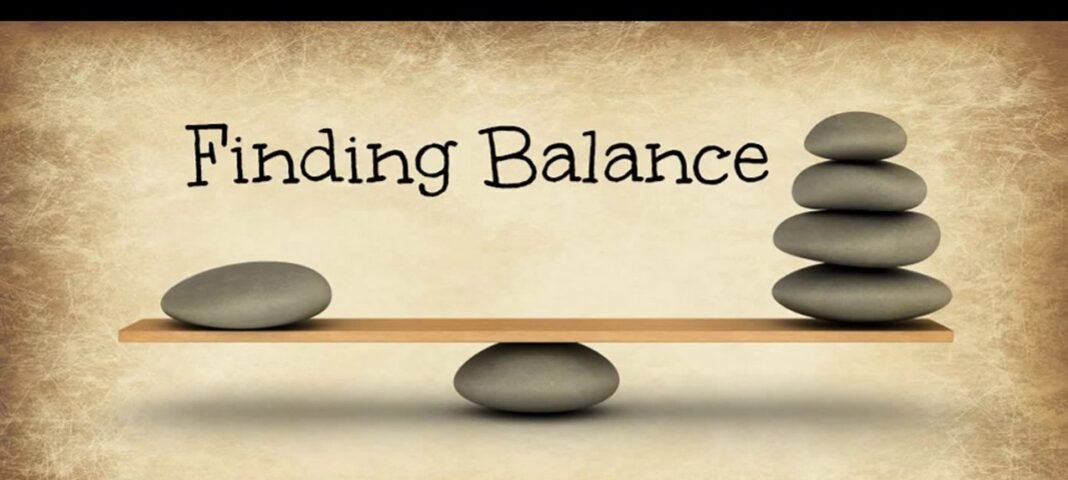In today’s fast-paced world, achieving a balanced and harmonious lifestyle can seem like an elusive goal. The demands of work, family, social obligations, and personal aspirations often pull us in different directions, leaving us feeling overwhelmed and stressed. However, finding harmony in your lifestyle is not an unattainable dream; it’s a journey that involves self-awareness, intentional choices, and continuous adjustments.
The Importance of Balance
Balance is not just a buzzword; it’s a fundamental aspect of a fulfilling and healthy life. When we neglect any area of our lives, whether it’s work, relationships, health, or personal growth, we risk experiencing negative consequences. Here are some reasons why balance is crucial:
Mental Well-being: An imbalanced lifestyle can lead to stress, anxiety, and burnout. When we overcommit to work or personal obligations, neglecting self-care and relaxation, our mental health suffers.
Physical Health: Neglecting our physical health by not exercising, eating poorly, or not getting enough rest can lead to various health problems. Maintaining a balanced lifestyle contributes to better physical well-being.
Relationships: Imbalance can strain relationships, as it may cause us to neglect our loved ones or be too preoccupied with other commitments. Strong and healthy relationships are essential for our overall happiness.
Fulfillment: Balance allows us to pursue our passions, hobbies, and personal goals, leading to a more fulfilled and purposeful life.
Practical Tips for Finding Harmony
Now that we understand why balance is essential, let’s explore practical tips to help you find harmony in your lifestyle.
Self-Reflection
Begin by taking some time for self-reflection. Assess the various aspects of your life, including work, family, relationships, health, and personal interests. Consider what is currently out of balance and why. Understanding your priorities and values is the first step toward achieving harmony.
Set Clear Priorities
Once you’ve identified your values and priorities, set clear goals and boundaries. Determine what matters most to you and allocate your time and energy accordingly. Learn to say no to commitments that do not align with your priorities.
Create a Schedule
A well-organized schedule can help you balance your various responsibilities. Use a planner or digital calendar to allocate time for work, family, self-care, and personal growth. Be realistic about your time commitments and avoid overloading your schedule.
Practice Self-Care
Self-care is vital for maintaining balance. Make time for activities that recharge you, such as exercise, meditation, reading, or spending quality time with loved ones. Prioritizing self-care enhances your mental and emotional well-being.
Delegate and Seek Help
Recognize that you don’t have to do everything on your own. Delegate tasks at work and at home when possible. Seek help from family members, friends, or professionals when needed. Sharing responsibilities lightens your load and reduces stress.
Learn to Let Go
It’s essential to let go of perfectionism and the need to control every aspect of your life. Accept that you cannot do everything flawlessly, and that’s okay. Embrace flexibility and adaptability when unexpected challenges arise.
Limit Screen Time
Excessive screen time, whether on phones, computers, or television, can disrupt your life’s balance. Set boundaries for screen use and allocate that time to more meaningful activities like connecting with others or pursuing hobbies.
Develop Healthy Habits
Incorporate healthy habits into your daily routine. Eat a balanced diet, exercise regularly, get enough sleep, and practice mindfulness. These habits boost your physical and mental well-being, enabling you to handle life’s challenges more effectively.
Communicate Openly
Effective communication is key to maintaining balance in relationships. Share your feelings, needs, and boundaries with your loved ones. Encourage open and honest conversations to avoid misunderstandings and conflicts.
Regularly Evaluate and Adjust
Finding harmony in your lifestyle is an ongoing process. Regularly evaluate your priorities and adjust your schedule and goals as needed. Life is dynamic, and your balance may need to shift to accommodate changing circumstances.
Conclusion
Balancing your lifestyle and finding harmony is a continuous journey that requires self-awareness, intentionality, and adaptation. Remember that achieving balance is not about perfection but about making choices that align with your values and priorities. By implementing the practical tips mentioned above and consistently evaluating your life, you can create a lifestyle that promotes well-being, fulfillment, and lasting happiness.

